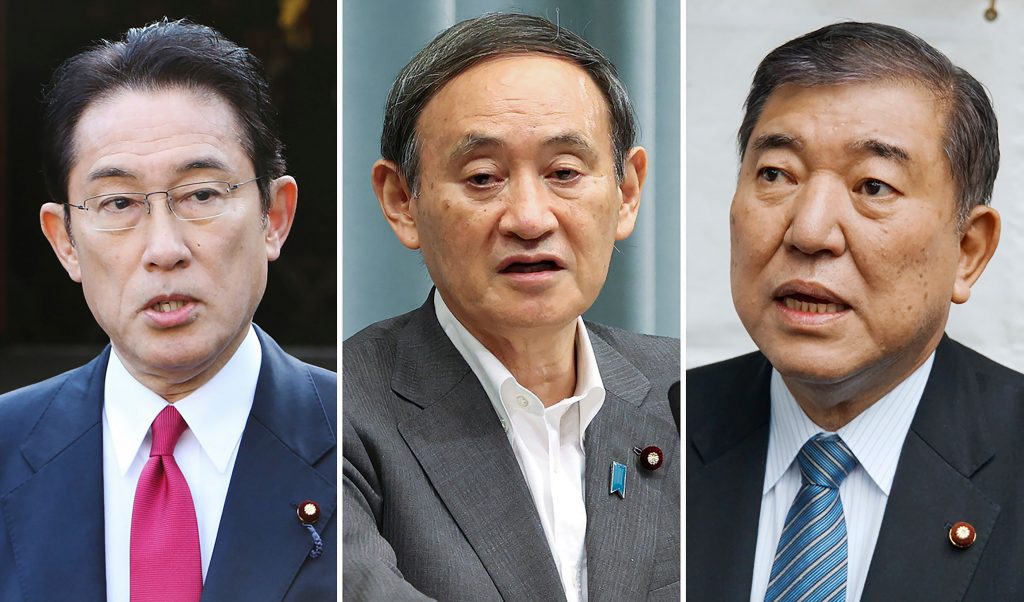Japan's ruling Liberal Democratic Party (LDP) will hold a leadership election on September 14 to select Prime Minister Shinzo Abe's successor, an official confirmed Wednesday.
The Liberal Democratic Party's general council approved the date at a meeting, with candidate registration set for September 8.
The newly-elected prime minister will serve the remainder of Abe's term as the president of the party through September 2021.
The winner of the election will be anointed the country's new prime minister at an extraordinary parliamentary session, possibly to be convened on September 16, according to local media reports.
Yoshihide Suga, 71, who has been Chief Cabinet Secretary for nearly eight years and considered as a continuity candidate, officially announced bid for LDP leadership on Wednesday afternoon.
Two other contenders in the election are former Foreign Minister Fumio Kishida and former Defense Minister Shigeru Ishiba, who announced their candidacies on Tuesday.

A combined photograph shows (L-R) former Foreign Minister Fumio Kishida, Chief Cabinet Secretary Yoshihide Suga and former Defense Minister Shigeru Ishiba. /AFP
A combined photograph shows (L-R) former Foreign Minister Fumio Kishida, Chief Cabinet Secretary Yoshihide Suga and former Defense Minister Shigeru Ishiba. /AFP
But Suga's position looks strong. He has secured the backing of five of the LDP's seven factions, public broadcaster NHK and others reported.
Financial markets also favor Suga, assuming he would continue with the "Abenomics" strategy aimed at reviving the economy.
But Ishiba is by far the most popular among the public and has been on a media blitz, appearing on several television programs over the past few days.
"During Abenomics, stocks rose, the yen was weak and wrought unprecedented profits to companies - that's something to be grateful for," Ishiba said on Fuji TV on Wednesday when asked how he would improve the lives of low-income workers and the unemployed.
"But what do we do with the dark side of that? That's the most important question in the post-Abe era," he said.
(With input from Xinhua and Reuters)